Plant protein - Proteins for vegans and vegetarians
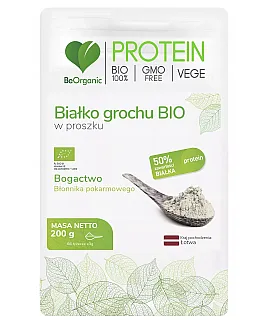
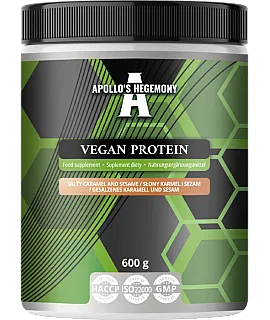
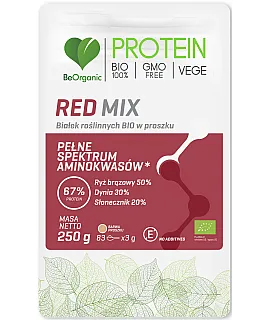
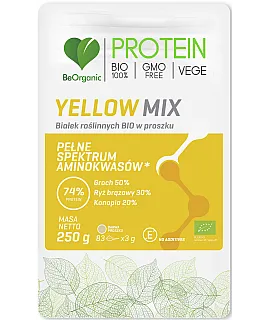
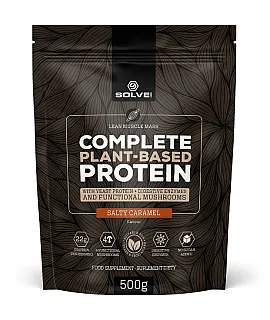
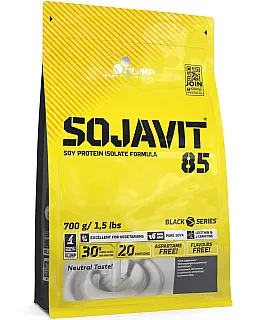
Plant-based protein supplements are an excellent choice for vegans, vegetarians and people who want to increase the intake of plant-based protein in their diet. Such supplements are rich in protein, essential amino acids and dietary fiber. The use of plant-based protein supplements can help build muscle mass, and prevent catabolic processes. Read more
For whom are plant protein nutrients intended?
Plant protein nutrients are ideal for people who have given up eating animal products, such as vegans and vegetarians. They are an excellent source of protein, essential for the body to function properly. They are also suitable for people with lactose intolerance, and those with allergies to milk proteins.
Plant protein supplements are also recommended for athletes avoiding animal products who want to increase the supply of protein in their diet. Protein is an essential macronutrient that helps build muscle mass and contributes to maintaining bone health.
It is worth remembering that plant-based protein supplements are intended for people over the age of 18 and should be used according to the manufacturer's recommendations. It is a good idea to consult a doctor or nutritionist before starting supplementation, especially if you have a chronic disease or are taking medications.
Types of plant proteins in nutritional supplements
Plant protein supplements can contain different types of plant-based proteins. The most popular of these are soy protein, pea protein, hemp protein and blends of various plant proteins. Each has its own unique properties and amino acid profile.
Soy protein is one of the most popular plant proteins used in supplements. It is rich in BCAA amino acids and has a high amino acid profile. Soy protein isolate is easily digested and well absorbed by the body.
Pea protein (plant protein) is another valuable source of amino acids. It is well tolerated by most people and is an excellent alternative to soy protein. Hemp protein, on the other hand, contains all the essential amino acids and is rich in dietary fiber and healthy fatty acids.
Daily protein intake vs. use of plant-based nutrients
Daily protein requirements depend on a number of factors, such as age, gender, body weight and level of physical activity. It is generally accepted that the optimal protein supply should be about 0.8-1.5 g per kg of body weight. For athletes and physically active people, the requirement can be higher and reach up to 2 g per 1 kg of body weight.
The use of plant-based protein supplements can help meet the daily requirement for this macronutrient, especially for vegan and vegetarian diets. These supplements provide complete plant protein in a convenient form, such as a powder or protein bar.
However, it is worth remembering that protein supplements should be a supplement to a balanced diet, not a replacement for it. The basis should be the consumption of a variety of plant-based products rich in protein, such as pulses, tofu, tempeh or quinoa.
Benefits of using plant protein supplements
Regular use of plant protein supplements can bring many benefits to the body. First of all, these supplements provide plant-based protein, and an adequate supply of protein is essential for the body to function properly. Protein contributes to building and maintaining muscle mass, and helps maintain healthy bones.
Plant protein supplements are also an excellent choice for people with lactose intolerance or milk protein allergies. They do not contain animal proteins such as whey protein, making them well tolerated by most people.
In addition, plant protein supplements are usually rich in dietary fiber, which supports the digestive system and contributes to a feeling of satiety. They also contain many valuable vitamins and minerals, such as iron, zinc and magnesium.
How to choose the best plant protein nutrient?
When choosing a plant protein nutrient, it is worth paying attention to several key factors. First of all, check the composition of the product and make sure it contains high-quality plant protein, such as soy protein isolate or pea protein. The higher the protein powder content, the better.
It is also important to choose nutritional supplements without unnecessary additives, such as sugar or artificial sweeteners. The best plant-based protein supplements should have a simple composition and contain no controversial ingredients.
You should also pay attention to the taste and solubility of the nutrient. It is good if the supplement dissolves well in water or plant milk and has a pleasant taste, making it easier to consume regularly. Before buying, it's a good idea to read the opinions of other consumers and look for recommendations from specialists.
The most important information about plant proteins:
- They are an excellent source of plant protein for vegans, vegetarians and people who avoid animal products.
- They contain different types of plant proteins, such as soy protein, pea protein or hemp protein.
- They help meet daily protein requirements, especially for plant-based diets.
- They support the building of muscle mass and prevent catabolic processes.
- When choosing a nutritional supplement, it is worth paying attention to the composition, protein content, taste and solubility of the product.